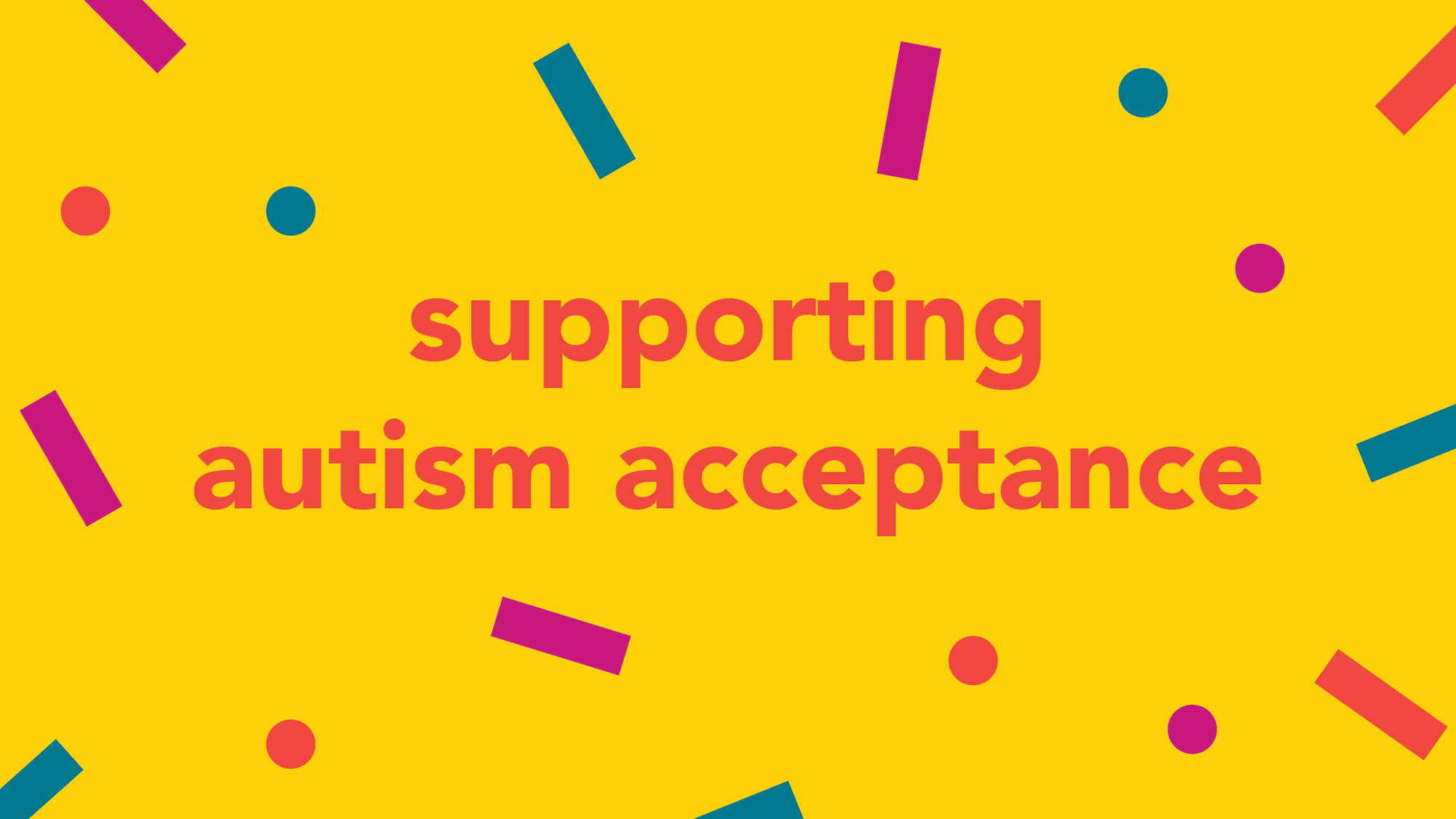Autism acceptance is a growing movement towards creating a more inclusive and accepting society that recognizes the value and strengths of people with autism. We can all play a role in supporting autism acceptance and promoting the rights and needs of people with autism. Here are some ways that you can help support autism acceptance:
-
Educate yourself: The first step in supporting autism acceptance is to educate yourself about autism. Read books and articles written by people with autism, attend autism conferences and workshops, and watch documentaries and films about autism. This will help you to gain a better understanding of the experiences and perspectives of people with autism.
-
Use correct language: Many times is important to use person-first language. This means putting the person before the diagnosis, but with Autism many individuals prefer using the term "an autistic person." rather than "a person with autism". If in doubt ask the person their preference!
-
Challenge stereotypes and stigma: There are many stereotypes and stigmas associated with autism, such as the belief that all people with autism are unemotional or incapable of social interaction. It is important to challenge these stereotypes and stigmas whenever you encounter them. Speak up when you hear someone making negative or ignorant comments about autism, and help to educate others about the diversity of experiences and strengths of people with autism.
-
Support autism organizations and advocacy groups: There are many organizations and advocacy groups that work to promote autism acceptance and support people with autism and their families. You can support these organizations by volunteering, making a donation, or participating in their events and activities.
-
Embrace neurodiversity: The concept of neurodiversity recognizes that people have different ways of thinking, learning, and experiencing the world. Embracing neurodiversity means recognizing and valuing the diversity of neurological differences, including autism. Celebrate the strengths and unique perspectives of people with autism, and work to create a more inclusive and accepting society that celebrates neurodiversity.
In conclusion, supporting autism acceptance is about promoting a more inclusive and accepting society that recognizes the value and strengths of people with autism. By educating ourselves, challenging stereotypes, supporting advocacy groups, and embracing neurodiversity, we can all play a role in promoting autism acceptance and creating a more inclusive society for all.
Autism awareness is a term used to describe the efforts to increase public knowledge and understanding of autism. The goal of autism awareness campaigns is to educate the general public about the characteristics of autism and the challenges that people with autism face. Awareness campaigns often focus on promoting early detection and diagnosis of autism, as well as raising funds for research and support services.
The goal of autism acceptance is to create a more inclusive and accepting society that recognizes the value and strengths of people with autism. Acceptance campaigns often focus on promoting the rights and needs of people with autism, as well as advocating for their inclusion in all areas of society.
While both autism awareness and autism acceptance are important, there are some key differences between the two approaches. Autism awareness tends to focus on the deficits and challenges associated with autism, whereas autism acceptance focuses on the strengths and abilities of people with autism. Awareness campaigns often use negative or pity-driven messages, while acceptance campaigns promote positive and empowering messages.
Another difference is that awareness campaigns tend to view autism as a problem to be solved, whereas acceptance campaigns view autism as a natural and valid form of human diversity. Awareness campaigns often promote a medical model of autism, which emphasizes the deficits and medical treatment of autism, while acceptance campaigns promote a social model of autism, which emphasizes the social and environmental factors that impact the lives of people with autism.
In conclusion, while both autism awareness and autism acceptance are important, the movement towards autism acceptance represents a more positive and empowering approach to autism. Acceptance campaigns promote the rights and needs of people with autism, and encourage a more inclusive and accepting society that recognizes the value and strengths of people with autism. As a society, we need to move beyond mere awareness and towards a greater understanding and acceptance of autism, and embrace the diversity and uniqueness of all individuals, including those with autism.
Learn More
Autism Acceptance Month vs Autism Awareness Month: Which is Correct?
Why April Is Autism Acceptance Month, Not Autism Awareness Month
Autism Acceptance Month is underway. Here's why the name is important



